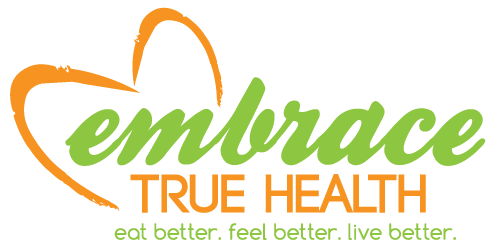How to Reduce Disease and Heal Your Body with an Alkaline Diet
/Today I want to talk to you about one of my favorite topics: The Acid/Alkaline Balance.
A few years ago, I had no idea what the heck that was (sounds way too much like science class...not my favorite) but once I learned more, it was a real game changer for me. The way I looked at my diet and lifestyle completely transformed and I was able to understand what my body needed to heal and how to work with it in order to get healthy.
The pH scale runs from 0 to 14, with 7 being neutral.
Below 7 and the closer to 0 you go, the more acidic
Above 7 and the closer to 14 you go, the more alkaline
Ideally, you want to maintain a slightly alkaline pH in your body, about 7.35 to 7.45. If you deviate too far above or too far below this range, that is when you'll start experiencing symptoms and eventually disease.
Certain foods and lifestyle choices are acid forming in the body and others are alkaline forming. This means that the dietary and lifestyle choices you make every single day have an impact on your pH.
These foods fall along a spectrum, so for instance, some vegetables are more acidic than others and some animal products are more alkaline than others.
The list below is a general guideline:
Most people are too acidic due to their dietary and lifestyle choices so is it any surprise that the rate of chronic diseases is so high? Think about the Standard American Diet (SAD), which is what many people eat. It looks a little something like this:
Breakfast: Coffee and a muffin -or- cereal and milk -or- eggs and toast
Lunch: Cheeseburger and fries + Soda
Snacks: Chips, crackers, candy bars + Coffee/Soda/Energy Drinks
Dinner: Pasta (with lots of cheese!) or Meat or Pizza or any fast food + Soda/Beer
Dessert: Ice cream or frozen yogurt
Add a stressful day on top of that and your body is an acidic mess!
So what happens when the body is too acidic?
YOU MIGHT EXPERIENCE THE FOLLOWING:
Inflammation
Weight gain, obesity, diabetes
Allergies
Low energy, chronic fatigue
Increase risk of cancer (cancer thrives in an acidic environment)
Premature aging
Joint pain, arthritis
Osteoperosis
Increase risk of cancer, heart disease, kidney disease
Digestion issues
Bowel issues (e.g. constipation)
Yeast/fungal overgrowth
Skin problems (e.g. acne, rosacea)
Mood disorders (e.g. depression)
Yikes!
Remember that your body is intelligent and WANTS to survive. In this case, it will take alkaline minerals from your bones to buffer the acid. Eventually, this can lead to a mineral deficiency which can contribute to Osteoporosis or weak bones. Forget about all of those "Milk, it does a body good" commercials. Consider that Americans consume more calcium-rich dairy (which is acid-forming) than most other countries and yet have one of the highest rates of Osteoporosis.
So what can you do?
To maintain good health, aim for a diet ratio of 60/40 or 80/20 (so make 60-80% of your diet consist of alkaline-forming foods with the rest consisting of acid-forming foods).
HERE ARE SOME SIMPLE WAYS TO BOOST ALKALINITY:
As soon as you wake up, drink 8-16 oz of lemon water (juice of 1/2 lemon per 8 oz of water)
Hydrate throughout the day. Aim to drink at least 64 oz of water per day.
Eat something green at every meal (e.g. kale in your breakfast smoothie, a salad for lunch, steamed broccoli at dinner)
Eat more whole foods and reduce your intake of processed foods and sugar
Relax and breathe deeply. You have 24 hours in a day so I know you can allocate at least 5, 10, or 15+ minutes each day to relax.
Laugh more
If consistent exercise isn't already a part of your lifestyle, start moving your body today. Wake up 20 minutes earlier and go for a jog before work. Or go for a walk during your lunch break.
Notice that most of the tips and information I share on this site and in my emails and programs are lifestyle habits and food recommendations that promote alkalinity. Now you have a better understanding of the bigger picture and how these healthier behaviors and choices affect your pH, which ultimately has an impact on your health.


